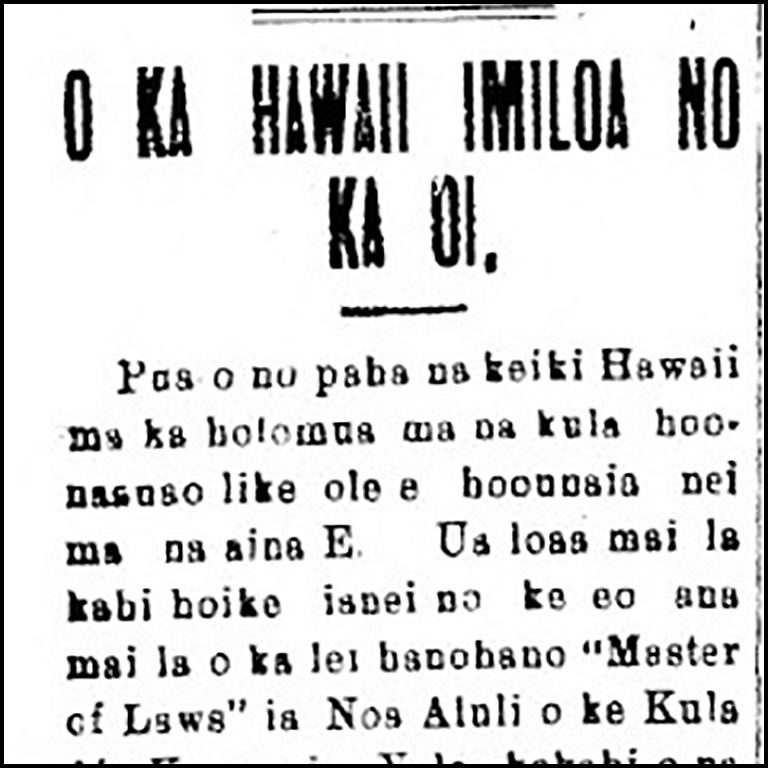The Journal of World Philosophies published Professor Michael Ing’s article on Kanaka (Native Hawaiian) philosopher Davida Malo (1795–1853) and his contemporary, Richard Armstrong (1805–1860). The article shows how Malo offers an account of being human that entails the proper management of impulses (makemake) and intentions (manaʻo) in ways that lead to flourishing (hoʻokūʻonoʻono) in complex communities (kauhale) overseen by leaders (aliʻi) that are informed by the examples of leaders from the past. Armstrong offers a similar picture of human beings as creatures that must learn to observe their intentions and to cultivate intentions that foster proper communal living—a community that Armstrong conceptualizes as a single family (hoʻokahi ʻohana). Unlike Malo’s description, however, the standards of this family construct are based on universal laws of right and wrong that only pertain to humans and their standing before a divine figure understood as the Biblical God. The significance of this piece is not only to show how Malo and Armstrong may have conversed over the question of how to live well, but also to begin a conversation in the field of world philosophies about the viability of Kanaka ways of life.
Ing Publishes on Being Human and Living Well
Monday, July 18, 2022

 The College of Arts
The College of Arts